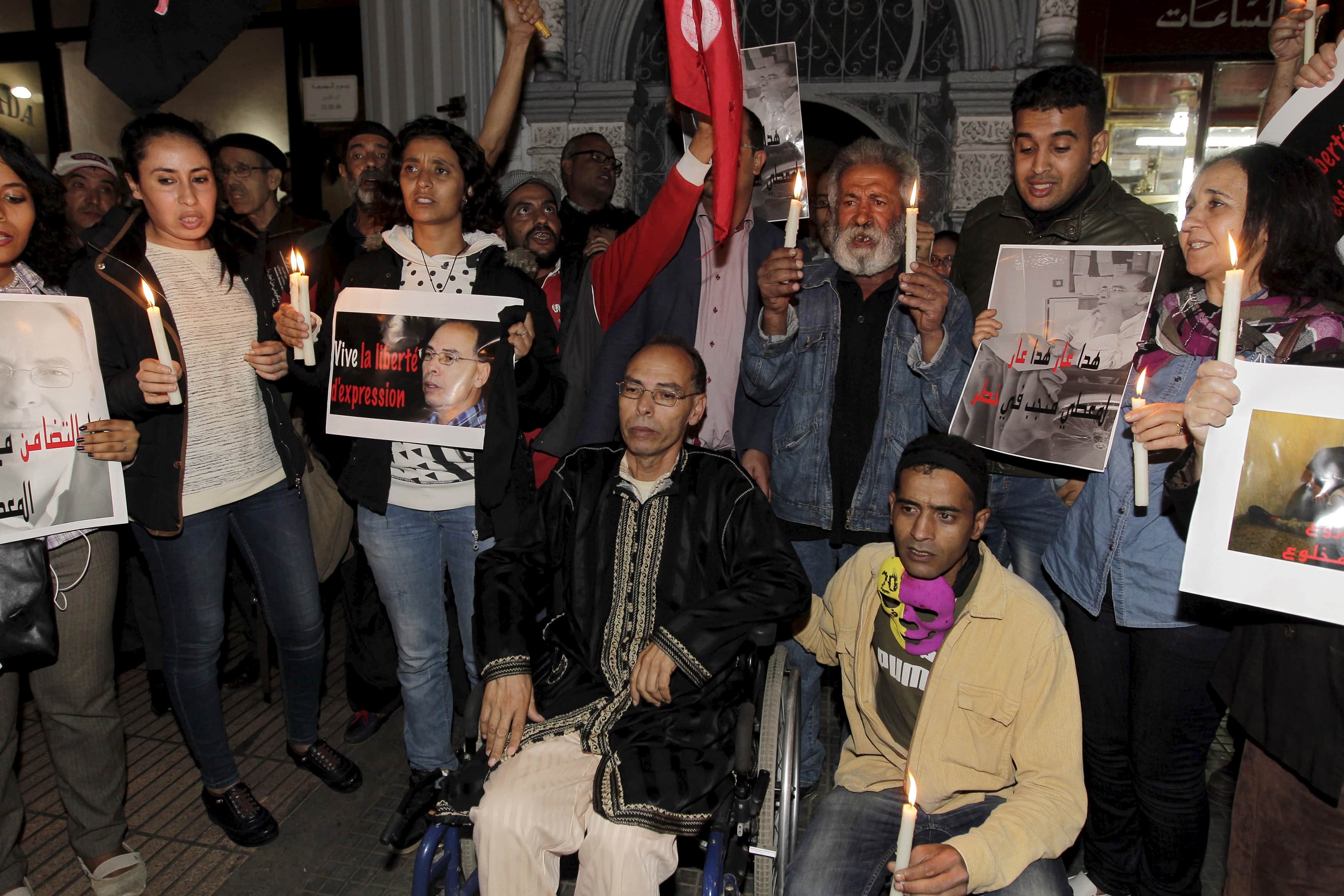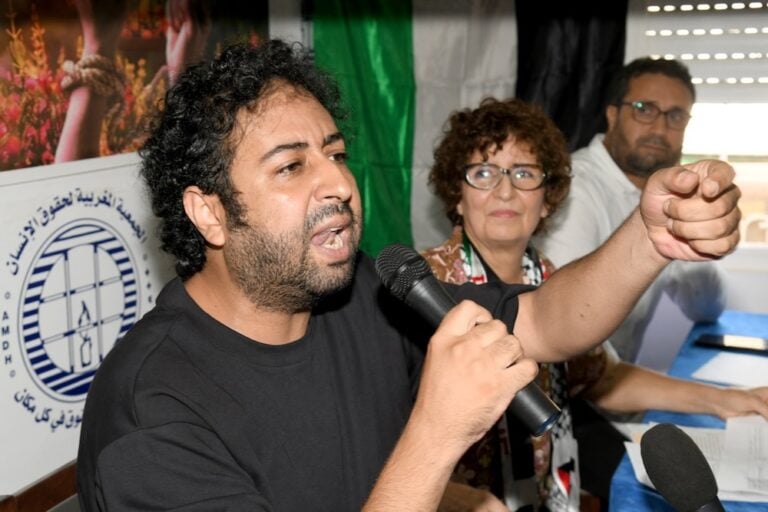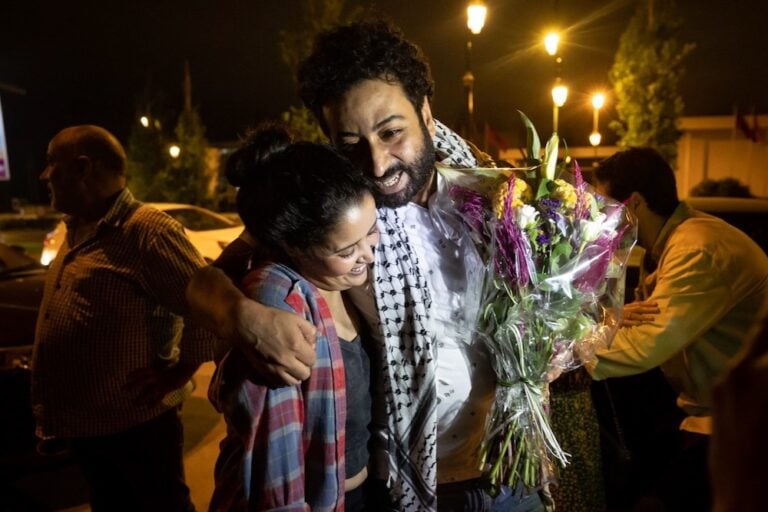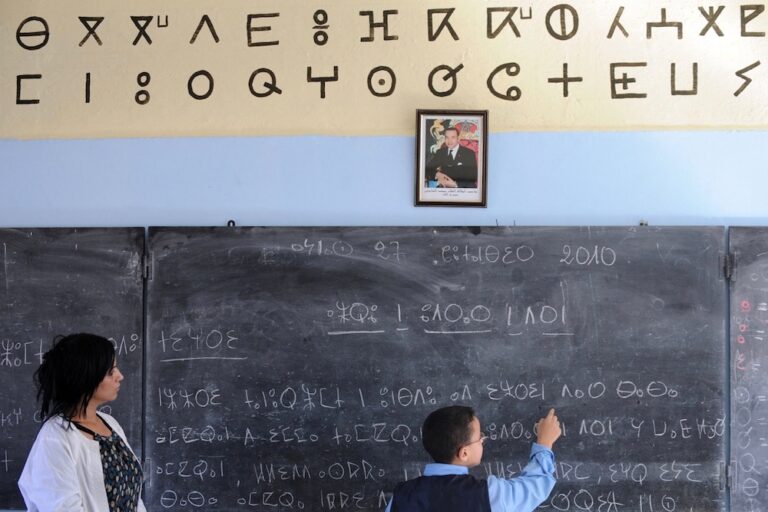Authorities blocked events organized by the outspoken Moroccan Human Rights Association (AMDH), filed charges against five activists for “harming internal security” after they organized a foreign-funded workshop on citizen journalism, and systematically prohibited demonstrations by pro-independence activists in Western Sahara.
This statement was originally published on hrw.org on 27 January 2016.
Tolerance for dissident voices in Morocco and Western Sahara diminished during 2015, Human Rights Watch said today in its World Report 2016.
Authorities blocked events organized by the outspoken Moroccan Human Rights Association (AMDH), filed charges against five activists for “harming internal security” after they organized a foreign-funded workshop on citizen journalism, and systematically prohibited demonstrations by pro-independence activists in Western Sahara. Royal pardons during the year included none of the many activists sentenced in past years in unfair trials.
“Morocco may not be rocked by turmoil and bloodshed like many countries of the Middle East, but neither is it the model of reform that it claims to be,” said Sarah Leah Whitson, Middle East and North Africa director.
In the 659-page World Report 2016, its 26th edition, Human Rights Watch reviews human rights practices in more than 90 countries. In his introductory essay, Executive Director Kenneth Roth writes that the spread of terrorist attacks beyond the Middle East and the huge flows of refugees spawned by repression and conflict led many governments to curtail rights in misguided efforts to protect their security. At the same time, authoritarian governments throughout the world, fearful of peaceful dissent that is often magnified by social media, embarked on the most intense crackdown on independent groups in recent times.
There were some positive steps in Morocco during the year, including legal recognition, for the first time, of a Sahrawi human rights organization highly critical of Moroccan rule and provisional legal residency for foreigners that UNHCR, the United Nations refugee agency, had determined to be refugees. A new law took effect ending military trials for civilians, although it did not benefit prisoners already convicted by military tribunals.
Defendants before civilian courts had no guarantees of a fair trial, however. The courts convicted people in trials that appeared to be politically motivated on the basis of statements prepared by the police while failing to investigate defendants’ claims that the police had extracted the statements by force or falsified them. People went to prison under laws criminalizing homosexuality and adultery.
During the year, the government and parliament deliberated several draft laws with major implications for human rights, including laws on protections for domestic workers, domestic violence, asylum, the rights of people with disabilities, and new penal and press codes. In 2016, the legislative outcome will weigh heavily on the human rights balance sheet, depending on which rights protections become law and which provisions that undermine rights are dropped or modified.
The coming year will also reveal whether Morocco intends to maintain the ban on visits that it imposed on Amnesty International and Human Rights Watch in 2015, or to resume a policy of general openness toward international human rights organizations.



